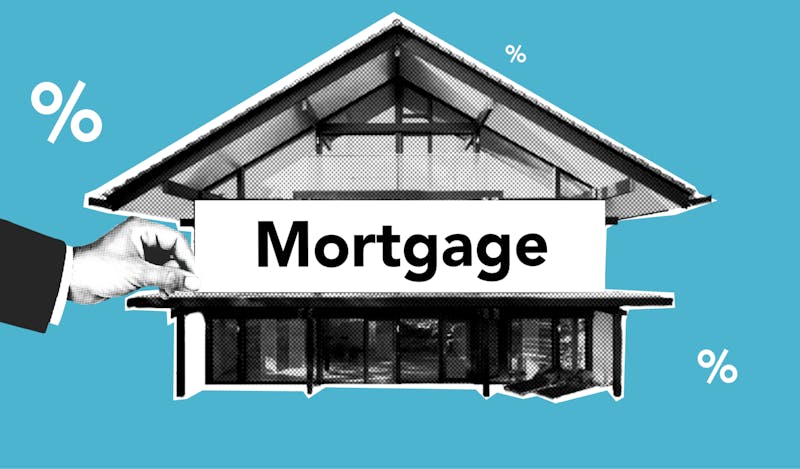Knowing your financing alternatives in the Canadian real estate market is like navigating a maze, with each turn presenting new opportunities and difficulties. Private mortgages stand out among these choices as an interesting route that is frequently misinterpreted by people.
In addition to providing insights into how to qualify for a mortgage in Canada’s distinct mortgage market, this blog aims to explain what a private mortgage is, delve into the nature of private mortgage lenders, and discuss the advantages and disadvantages of a private mortgage.
Understanding Private Mortgages
What is a private mortgage? In short, it is a loan that is given by a private company instead of a conventional bank or financial institution, and it is backed by real estate. These organizations, which provide alternative funding choices to those who might not meet the requirements of traditional lending, can be individuals, investment groups, or private mortgage firms.
Example:
Consider Sarah, who just launched her own company and started a business. Her company has a big potential, however, because of her inconsistent revenue, she finds it difficult to meet the strict requirements of traditional banks for income verification.
So, many mortgage options in Canada become unavailable for her and a private mortgage becomes a solution in this situation. After assessing the equity in Sarah’s preferred property and the viability of her enterprise, a private lender chooses to extend to
her the necessary mortgage loan. Because of this flexibility, Sarah is still able to buy her home even though her salary is unstable.
What is a Private Mortgage Lender?
Among the many types of mortgages in Canada, private mortgage companies and individuals are dedicated to bridging the gap left by traditional financial institutions, contributing significantly to the diversified landscape of private mortgage lenders.
Let’s understand in detail what a private mortgage lender is. What sets apart a private mortgage lender is their capacity to be accommodating when it comes to mortgage loan approval requirements. Since private lenders typically prioritize the property’s worth and potential above the borrower’s credit history, they are an excellent option for those who would not qualify through regular channels. Remember that assessing the pros and cons of private mortgage lenders is important.
Pros of Private Mortgages: When to Choose Them
Several financial and personal considerations influence a private mortgage choice. In the following situations, choosing one could make sense:
- When Traditional Lending Criteria Can’t Be Met: If you have a non-traditional income, poor credit history, or are self-employed, and traditional banks have denied your mortgage application, a private lender might be your gateway to homeownership.
- Need for Quick Financing: In real estate markets where competition is fierce, the ability to close quickly can be a significant advantage. Private mortgages often provide faster funding than traditional loans.
- Investing in Unconventional Properties: Some properties do not meet the criteria set by traditional lenders due to their condition or type. Private lenders are generally more open to financing such investments.
- Building Credit History: For those looking to improve or build their credit history, securing a private mortgage and making timely payments can contribute positively to their credit score.
- Short-term Financing Needs: A private mortgage is a quicker but more expensive choice if you’re seeking short-term financing with the plan to sell the house or refinance in a few years.
- Renegotiable: Private mortgages have easier term adjustments.
5 Cons of Private Mortgages
Navigating the world of private mortgages can be akin to uncovering a hidden path that leads to homeownership for many Canadians. Yet, this path comes with its set of challenges. While private mortgages offer a beacon of hope for those unable to secure financing through traditional means, they also carry certain drawbacks that prospective borrowers must carefully consider.
- Higher Costs: The most significant disadvantage of private mortgages is undoubtedly their higher costs.
- Implications of Higher Equity Requirements:
- Limited Borrowing Capacity: Borrowers might find themselves able to borrow less than they would with a traditional mortgage, affecting their purchasing power.
- The barrier to Entry: For those looking to refinance or purchase a property, the higher equity requirement can make it difficult to qualify for a private mortgage, especially if they have limited funds available for a down payment.
- Shorter Terms: Private mortgages often come with shorter terms, typically ranging from one to three years, whereas traditional mortgages might offer terms of up to 25 or 30 years.
- Equity Requirements: Private lenders typically require more substantial equity in the property, which directly impacts the loan-to-value (LTV) ratio they’re willing to offer.
- The Impact of Higher Interest Rates:
- Increased Monthly Payments: Higher interest rates translate to higher monthly payments, which can strain the borrower’s budget.
- More Interest Over the Loan’s Life: Throughout the loan, borrowers end up paying a significantly larger amount in interest compared to a conventional mortgage.
Mortgage Loan Private Lenders: How They Work
Mortgage loan private lenders operate under a different set of criteria compared to traditional financial institutions. Here’s how:
- Flexibility in Approval: They prioritize the property’s equity and borrower’s potential over traditional credit scores. This approach particularly benefits individuals with non-traditional income sources or those facing financial challenges.
- Quicker Processing Times: Without the layers of bureaucracy typical in banks, private lenders can approve loans faster, making them ideal for time-sensitive purchases.
- Customized Lending Terms: Private mortgages often come with the ability to tailor terms to fit both the lender’s and borrower’s needs, offering a level of personalization not usually found in standard mortgage agreements.
- Higher Interest Rates: Reflecting the higher risk they assume by lending outside traditional criteria, private mortgage rates are usually higher.
- Shorter Loan Terms: Typically, these loans have shorter terms, requiring borrowers to refinance within a few years, which could be a strategic advantage or a drawback, depending on one’s financial plans.
Understanding the nuances of mortgage financing, such as what a private mortgage is and why it makes sense to pursue one, is essential in the ever-changing world of Canadian real estate. Private mortgages are a versatile substitute for conventional financing options, whether starting a non-traditional real estate transaction, needing quick loan approval, or having special financial needs.
You can decide whether a private mortgage is the right choice for you to achieve your long-term financial objectives and become a homeowner or successful investor in Canada’s real estate market by carefully analyzing the pros and cons of private mortgage lenders. Also, when exploring how to qualify for a mortgage, understanding the specific criteria for private mortgage qualification can significantly broaden your financing options.



